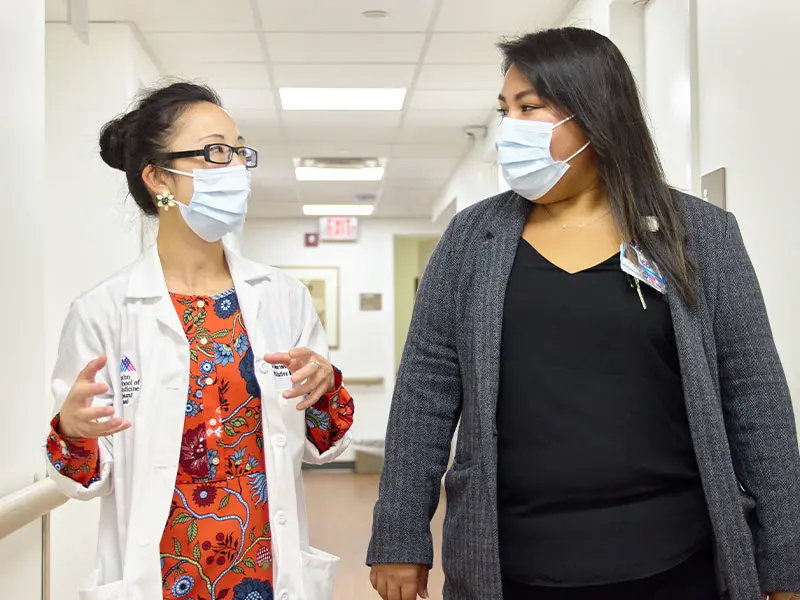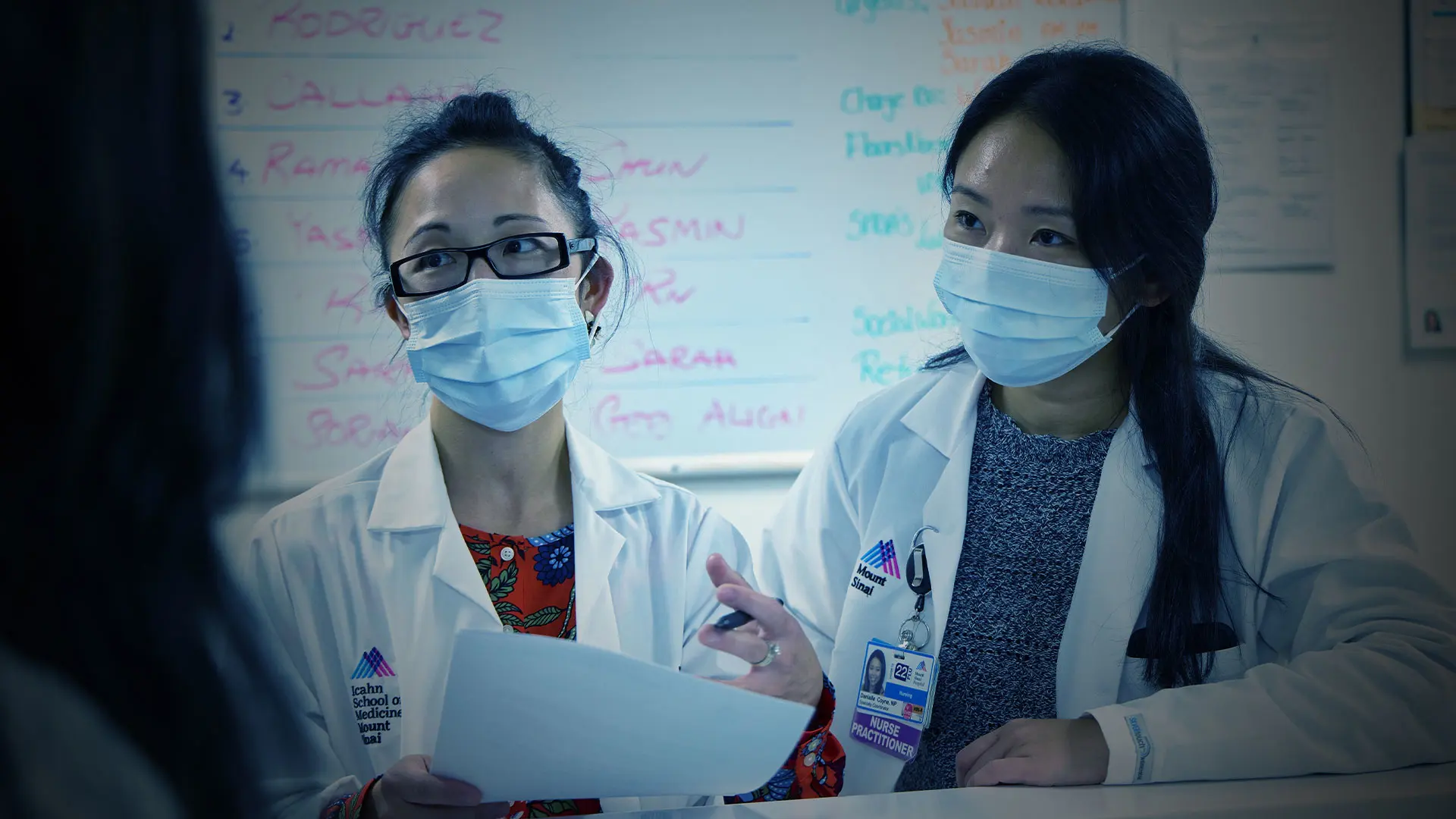By setting its sights small, the Brookdale Department of Geriatrics and Palliative Medicine’s Aging, Life Innovations, Goals, and Needs (ALIGN) Program is gearing up for big results. The innovative ambulatory care model is targeting the top five percent of patients who are responsible for more than 50 percent of health care costs in the United States—patients whose complex needs are inadequately met by the current health system.
By intervening on behalf of the frailest and most vulnerable patients, the comprehensive care program is already having an impact within the Mount Sinai Health System. It is reducing admissions to emergency rooms and helping to take some of the burden off primary care teams.
The success of ALIGN has resulted in the creation of a spin-off, known as ALIGN-CARE (Collaboration Achieving Readiness and Empowerment), which is applying the expertise and skills of its core clinical team of geriatrician, nurse practitioner, and social worker to support surgeons before they operate on patients considered high-risk. In 2022, the ALIGN-CARE co-management program was expanded beyond its initial cohort of kidney transplant patients to include vascular, urology, oncologic, and general surgeries.
ALIGN was conceived in 2016 by R. Sean Morrison, MD, the Ellen and Howard C. Katz Chair of the Brookdale Department of Geriatrics and Palliative Medicine at the Icahn School of Medicine at Mount Sinai, and Audrey Chun, MD, Professor of Geriatrics and Palliative Medicine and Vice Chair for Clinical Services.

Stephanie Chow, MD, left, Assistant Professor of Geriatrics and Palliative Medicine who heads up ALIGN, and Lizette Andrango, LMSW
“They realized there was an older and seriously ill population living in the community that was often in the emergency room, had longer hospital stays with more complications, and was more of a stress on our primary care teams and their own family caregivers,” says Stephanie Chow, MD, Assistant Professor in the Brookdale Department who heads up ALIGN and ALIGN-CARE. “The idea was thus born to develop a specialized geriatrics clinic focused on a smaller group of high-risk patients who required and could benefit from this extra layer of multidisciplinary care.”
Six years later, the program includes more than 100 patients and has added a second geriatrician and research team, an administrative associate, and recently expanded to a second clinical site at Mount Sinai Morningside. ALIGN also maintains an active research arm with four co-investigators who are exploring how to further expand the program’s services, with an eye to standardizing the model so it could be implemented by health systems across the United States.
The model is unique in a number of ways. First, it makes clear to patients and their families upfront that their participation in ALIGN is only temporary.
“We let patients know that we’re targeting modifiable risk factors, and once we’ve stabilized the challenges compromising their health, we plan to transition them back to the care of their primary care doctors,” says Dr. Chow, who also directs ALIGN’s research initiatives.
And therein lies another strength: ALIGN uses its multidisciplinary resources to offer evidence-based, comprehensive, and geriatrician-personalized care that will enable patients to function within their home and community.
“We have an aging population whose needs are not well met by what the traditional health care system is able to offer ... ALIGN offers a model to help achieve the highest quality of life for some of our most vulnerable patients.”
- Stephanie Chow, MD
Based on referrals from their primary care doctors, patients are first evaluated by ALIGN’s geriatrician and social worker and, if accepted into the program, are expected to become active participants in their structured treatment regimen. In the wake of COVID-19, some of their interaction with the clinical team is via telehealth, though they also have direct access to the team via a 24-hour hotline.
As ALIGN has become beneficial to primary care providers, ALIGN-CARE has proven equally adept at enhancing the care of surgeons who operate on elderly patients.
“Surgeons may be hesitant to proceed with older patients they consider high-risk without further evaluation, including frailty screening and a comprehensive geriatric assessment,” says Dr. Chow. “We step in to do a full evaluation, including memory and gait analysis and a review of their medical, social, and medication histories. We essentially risk-stratify these patients and hand that information back to the surgeon and primary care provider. As we continue to develop our program, we intend to remain involved in their perioperative care, inside the hospital and postoperatively.”
While the twin ALIGN programs are still being refined, their architects see them as powerful and flexible models for the future.
“We have an aging population whose needs are not well met by what the traditional health care system is able to offer,” says Dr. Chow. “With its intra-professional, specially trained team, ALIGN offers a model to help achieve the highest quality of life for some of our most vulnerable patients.”
